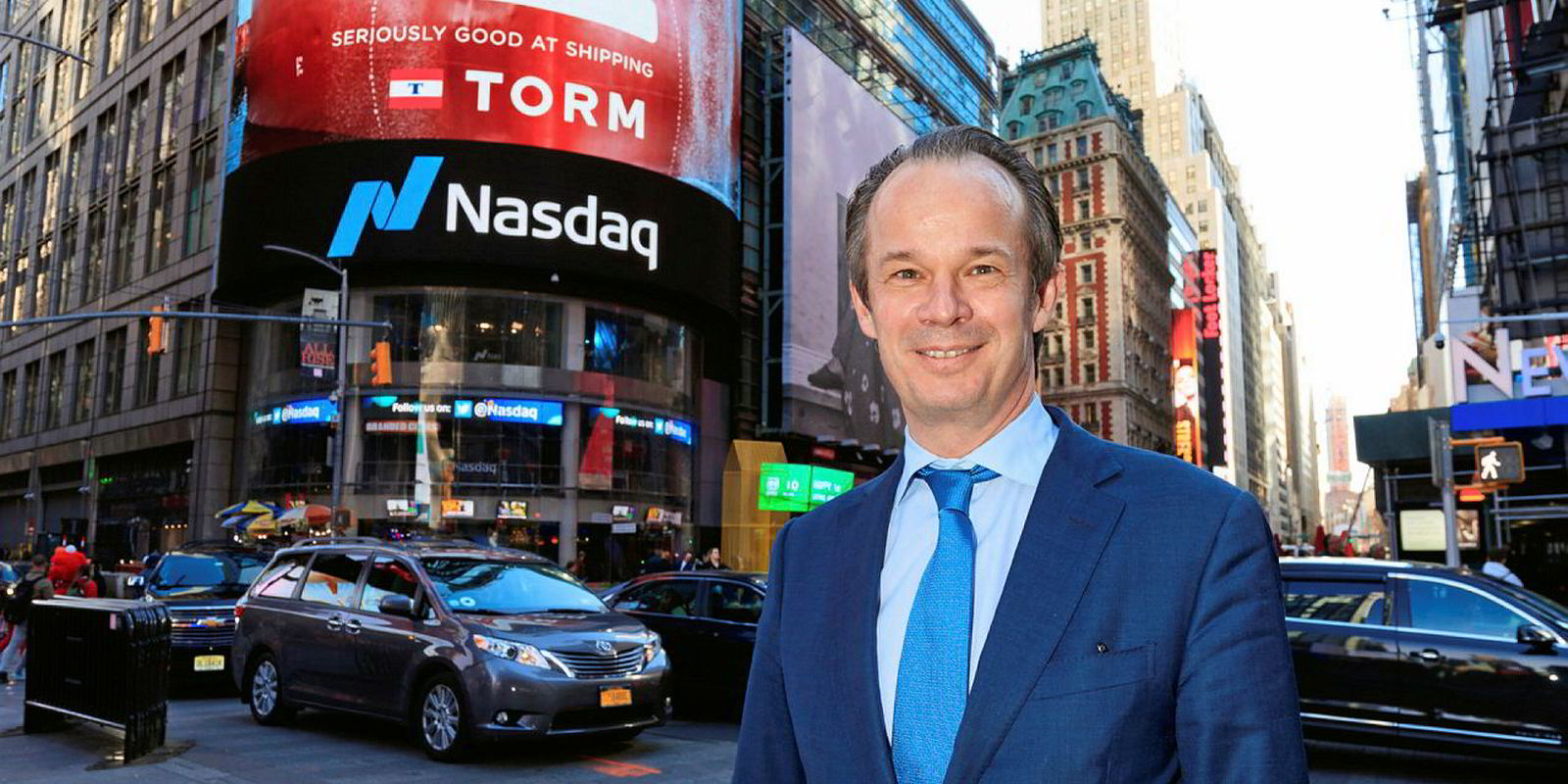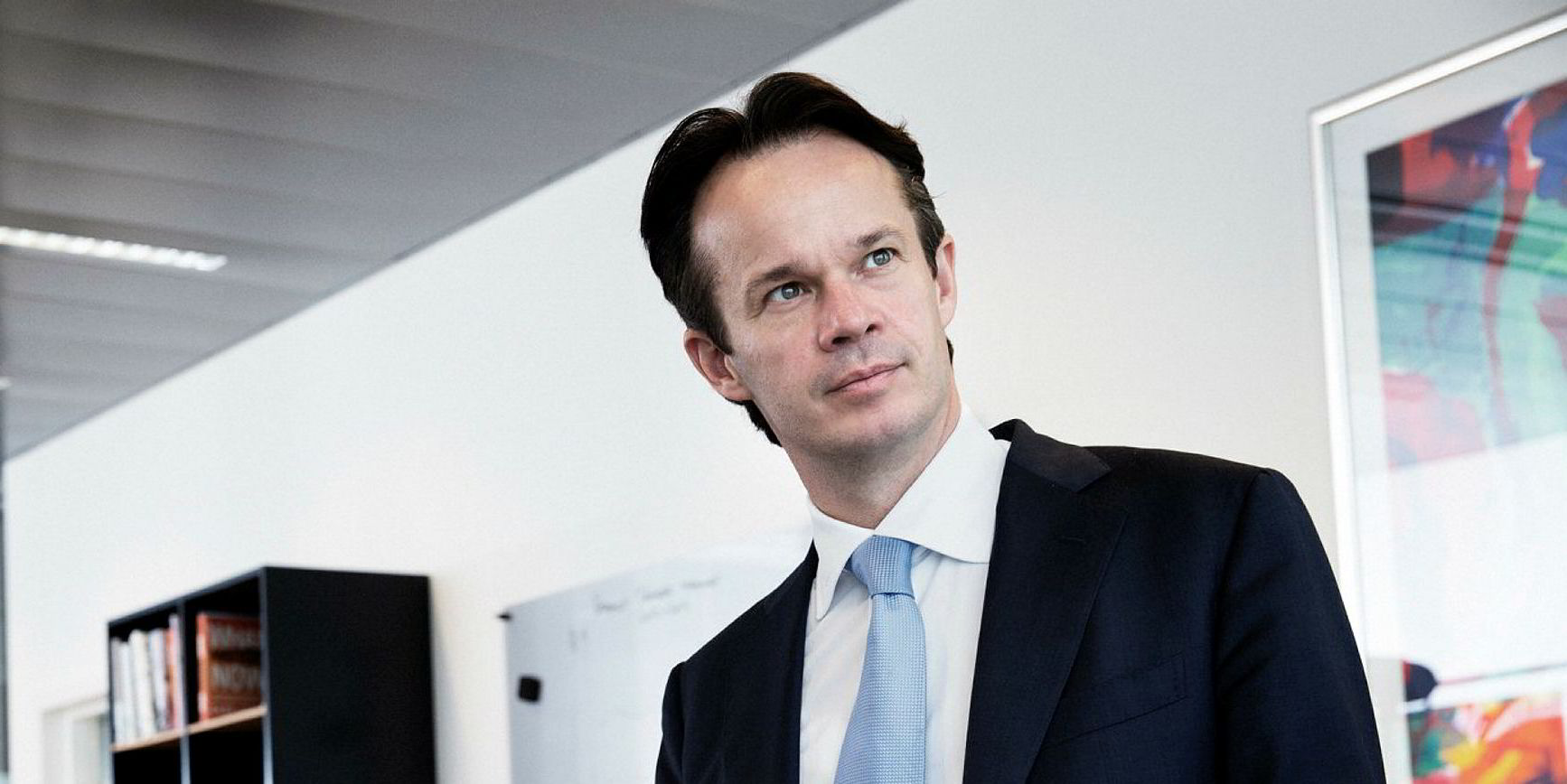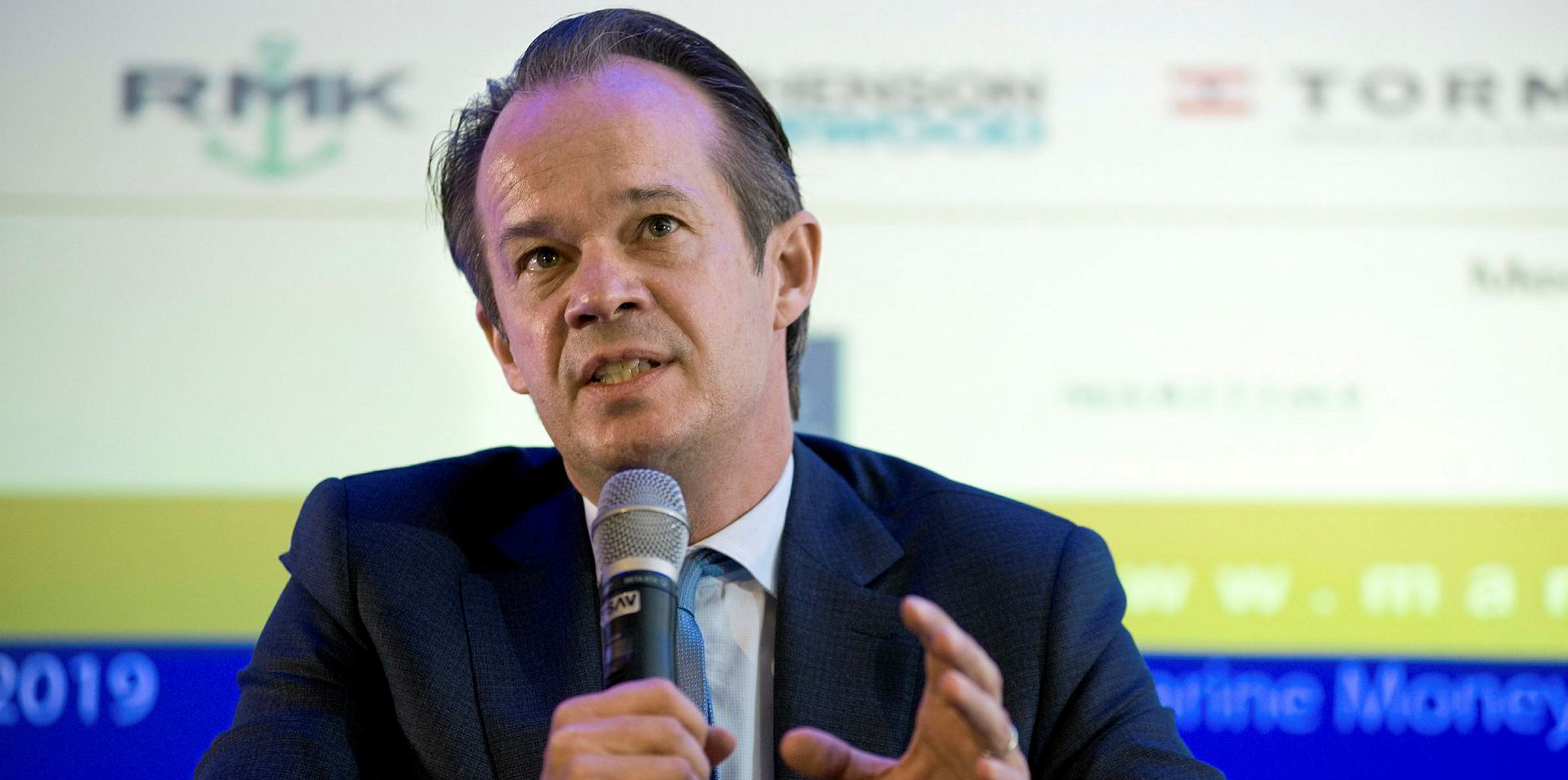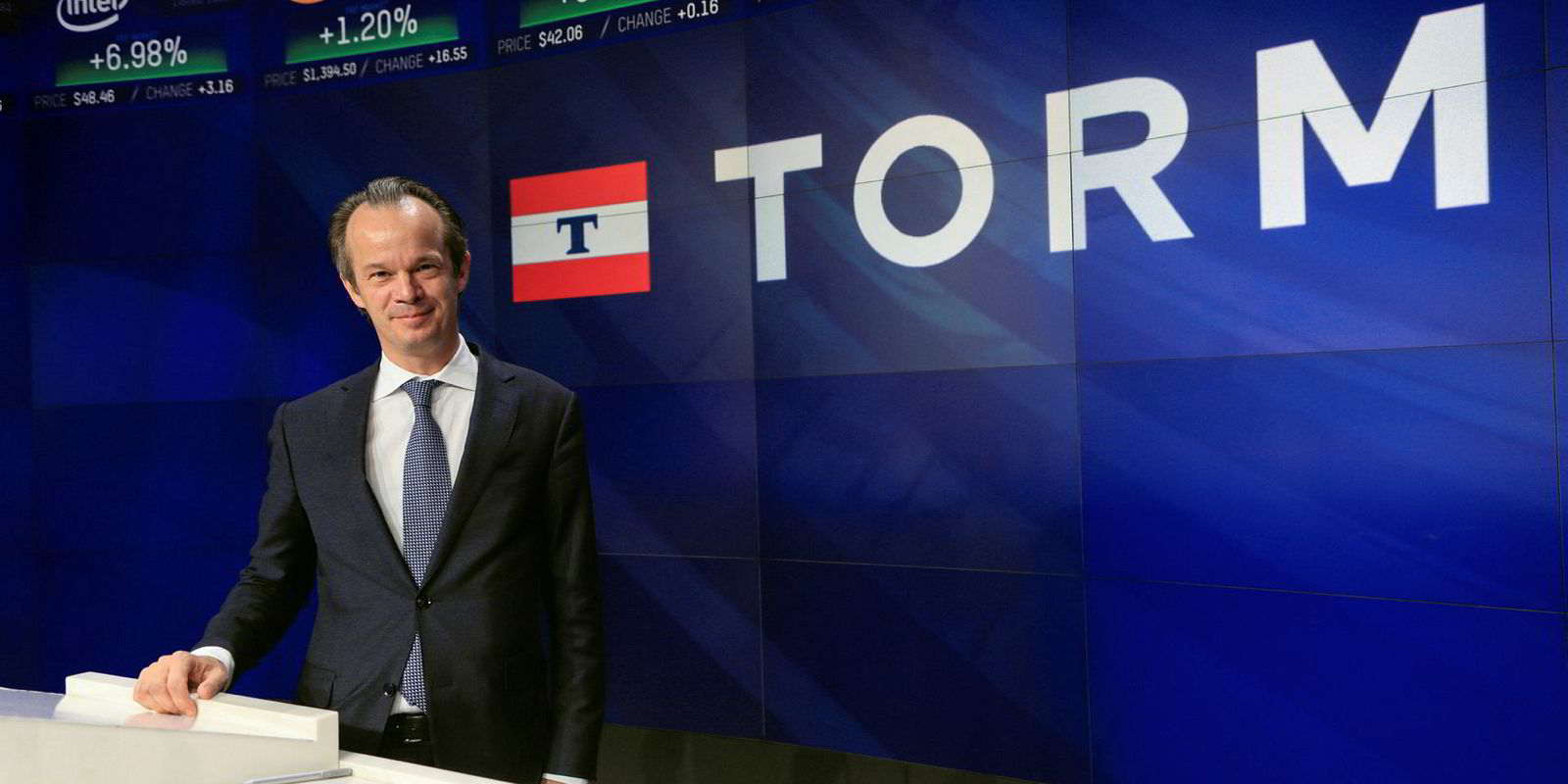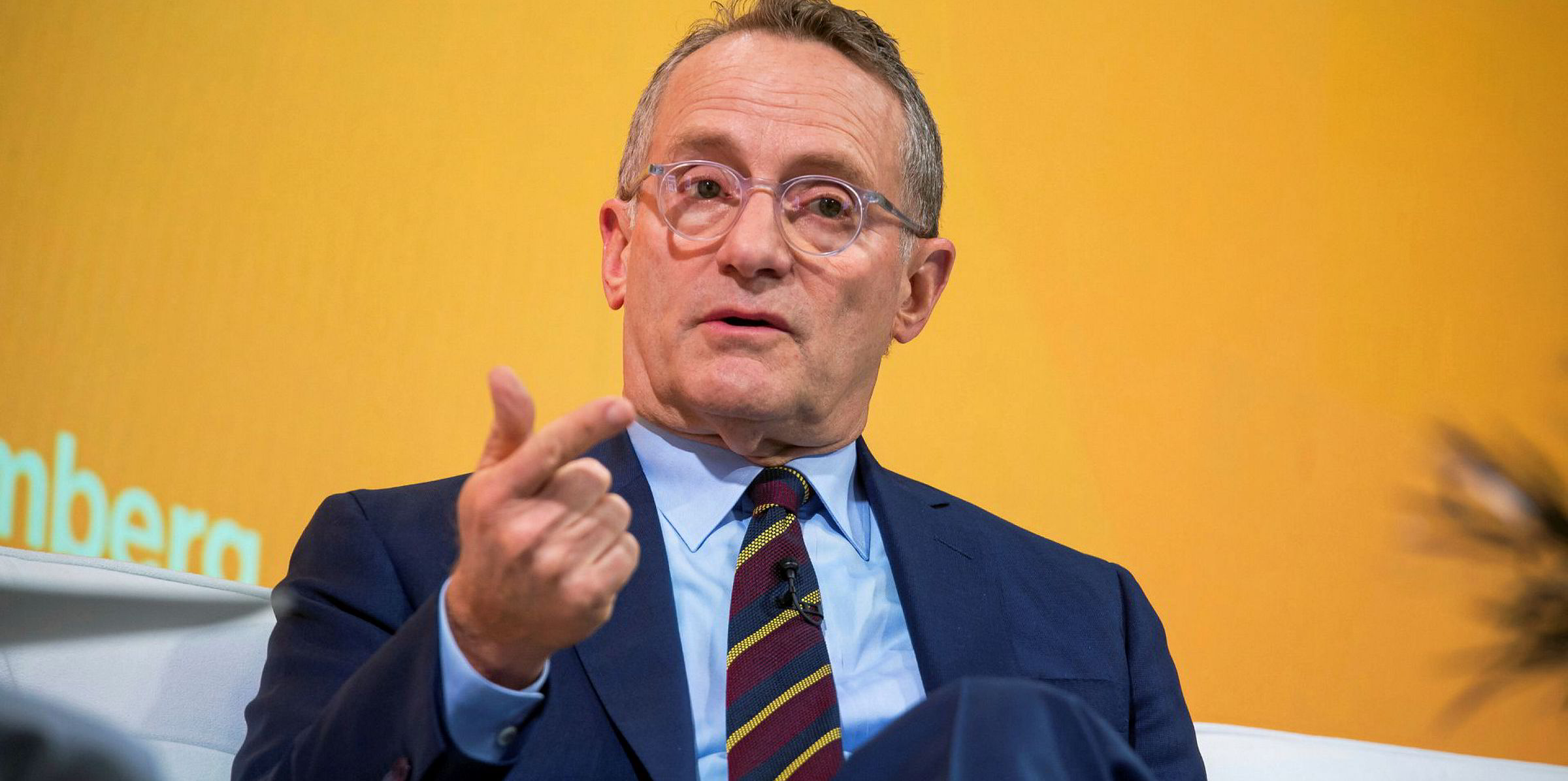Torm’s anniversary party in late March had more on the menu than birthday cake. Food stalls serving the national dishes of the countries where it is active lined the lobby of its modern Hellerup-based headquarters as about 200 staff marked its 130th year.
“Shipping is cyclical, and for Torm shipping has been cyclical,” chief executive and executive director Jacob Meldgaard says.
“So, to stand here and be the tramp shipping company with the second-largest market cap in Denmark and the second-largest owned fleet is something I think motivates the organisation.”
Common culture
Meldgaard’s speech at the party presented his belief that everybody has a specific role to play at the company.
“We are all equals with different roles, not a hierarchy where certain people are more than others,” he says.
Old-school shipowners, such as co-founder Ditlev Torm, were often the masters, overseeing the build and organising the investment capital.
“[He] was an entrepreneur who had the skills around him,” Meldgaard says. “It was a small community.
“We are representing that now as a team, 130 years later. Everybody has been hired and none of us founded the company, but we share a common culture and we are proud to be part of this journey.”
Torm’s initial capital raise was completed in January 1889 and its first ship, a newbuilding, was delivered in December that same year.
Today, the company has 72 owned vessels and three chartered-in ships on the water. It will take in a further nine newbuildings by early 2020.
Since late 2017, the company’s newbuilding investments are about $50m in profit and there are no plans to cash in on modern vessel asset plays .
“We think we are just embarking on a multi-year up-cycle,” Meldgaard says. "This is not the time.
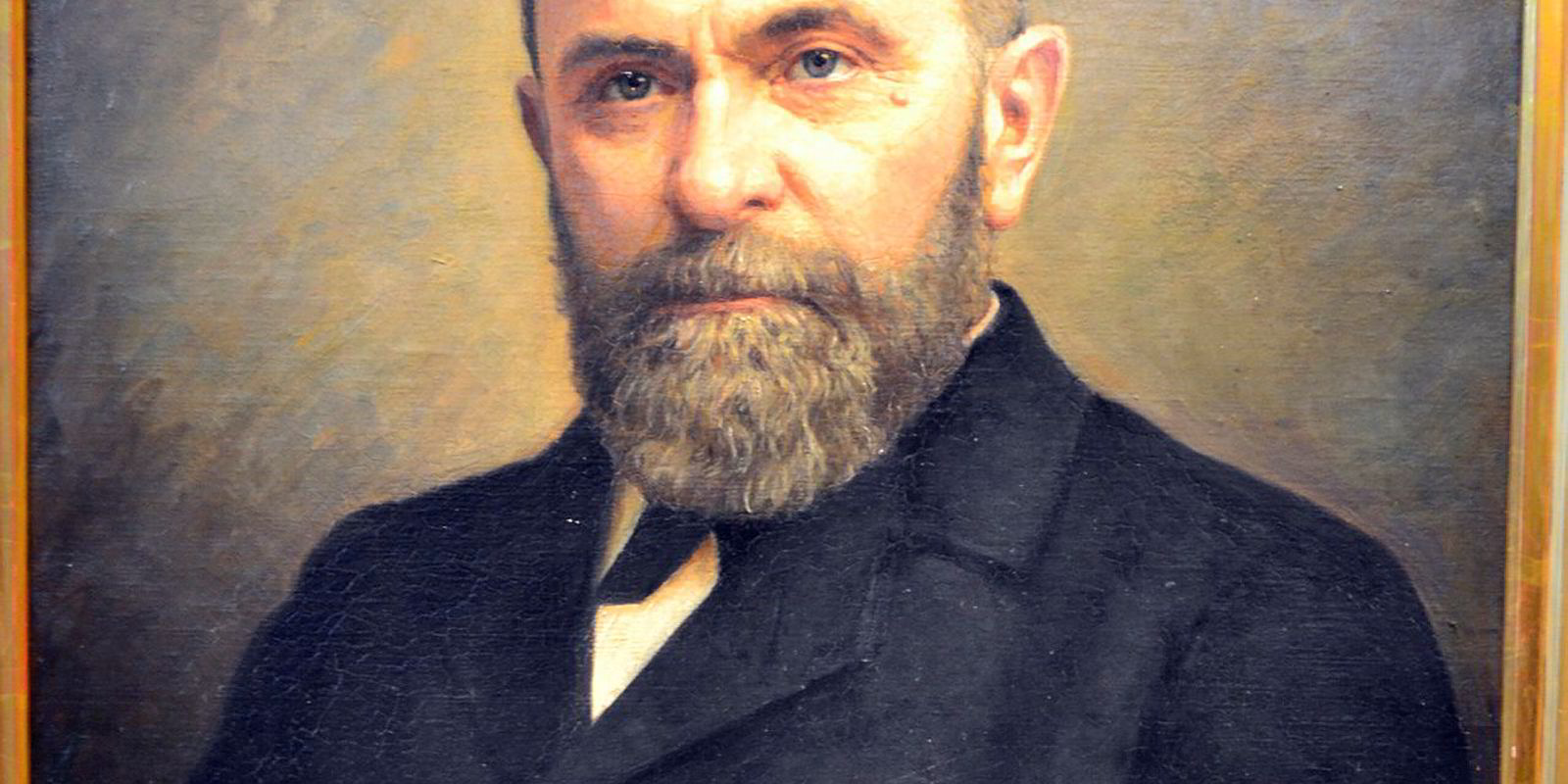
“The prices we cleared seemed to have been in the lowest quartile. Even though the prices have hiked up by 15% to 20%, it does not mean it’s time to take money off the table.”
After a lacklustre product tanker market between 2016 and 2018, Meldgaard says a key goal for this year is to break out of that mould and come back with a stronger financial result.
“That will be to the benefit of all stakeholders as, in that scenario, we will be able to give back to our shareholders by virtue of our distribution policy, where we pay out 25% to 50% of profit semi-annually,” he says.
“Personally, I look forward to continue delivering best-in-class results but in an improved environment. Everybody will benefit from that situation.”
I can’t speak on behalf of Oaktree but, on behalf of Torm, there is no change in the dynamic we have
Jacob Meldgaard, CEO and executive director of Torm
The executive director’s own story with Torm began nine years ago when he arrived from rival Norden. He joined as the company was battling to restructure after a crash in the freight markets.
Two-stage restructuring
He oversaw a two-stage restructuring process: first key lenders took ownership of the company and then Oaktree Capital Management injected fresh capital and merged its own product tanker fleet into the Copenhagen-listed platform.
Reflecting on key lessons from the experience, Meldgaard says: “In every situation, it is important you retain your professionalism and you retain your focus on the things that you can influence yourself.
“Patience in our industry is a virtue. You can’t expect stakeholders in a difficult situation to accelerate and make quick decisions.
“You need to be more thoughtful and consider all stakeholders when things get more difficult.
"Of course, it will take a bit longer but that patience will pay off as you will get the right structure and everybody onboard to support you.
“In that sense, I believe Torm is proof that when you do it like that, you can achieve great things even when coming from a position of weakness.”
Today, Los Angeles-based Oaktree holds around two-thirds of Torm’s shares. However, while Oaktree has been a force in consolidating the shipping market, it has been involved in its own merger this year.
Brookfield Asset Management, a key investor in Teekay Offshore Partners, has taken a stake of more than 60% in Oaktree, creating a $475bn asset manager.
Business as usual
For Torm, however, there has been no change. Christopher Boehringer, managing director of Opportunities Funds at Oaktree, was re-elected as chairman of the board at Torm’s annual general meeting on 11 April.
“That is the best signal to me that it is 'business as usual' in terms of the activity that I see and we have with Oaktree,” Meldgaard says.
“I can’t speak on behalf of Oaktree but, on behalf of Torm, there is no change in the dynamic we have.”
